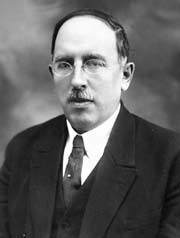Sadri Maksudi Arsal
Sadri Maksudi Arsal | |
|---|---|
 Sadri Maksudi Arsal in 1930s | |
| Born | Sadreddīn Nizāmeddin al-Maqsūdī 1878 Taşsu, Kazan Governorate, Russian Empire |
| Died | 20 February 1957 (aged 76) |
| Alma mater | Sorbonne University |
| Known for | President of Idel-Ural State |
| Spouse | Kamile Arsal |
Sadri Maksudi Arsal (İske imlâ Tatar: صدرالدین نظام الدین المقصودی; 1878 – 20 February 1957) was one of the leading figures in the national awakening of Tatars in Russia during the early 1900s. He worked as a writer, lawyer, politician, professor, lecturer, researcher of Turkic languages and a delegate of the League of Nations. He was the president of the short-lived Idel-Ural State.[1][2]
Name
[edit]His birthname was Sadreddīn Nizāmeddin al-Maqsūdī, and while operating as a congressman in State Duma, he used the Russified version Sadrutdin Nisamutdinovich Maksudov (Садретдин Низаметдинович Максудов). Later in Turkey, he added "Arsal" to his name and from 1935 forwards went by the name he is now known for.[1]
Biography
[edit]
Sadri Maksudi Arsal was born in 1878 in the village of Taşsu near Kazan, Russian Empire.[3] After graduating from the Teacher's Institute in Kazan, in 1900 he traveled to Istanbul where he stayed for a while. Two years later, Arsal went to study in Sorbonne University, where he eventually graduated as Master of Sciences in Law. When he returned to Russia, he joined the Islamic Constitutional Party. Arsal operated as a representative of the District of Kazan in the second Duma in 1907 and the third in 1908. Later, Arsal was elected as the president of the short-lived Idel-Ural State. Before that, he had operated as a chairman of a national assembly held in Ufa in 1917, regarding given state.[2]
In 1918, after the rise of bolshevism and the breaking up of the Islamic party he was a part of, Sadri Maksudi Arsal escaped through Saint Petersburg to Finland, where he stayed in Tampere, at the home of local Finnish Tatar named Imad Samaletdin. From there, the next year he continued his trip to Paris, where at the Peace Conference he spoke for the political rights of people living in Idel Ural area, though he was not able to produce a positive result with his speech.[2][4]
In 1922, Sadri Maksudi Arsal returned briefly to Finland, because his family had fled there from Soviet Union. Together they traveled to Germany, settling in Berlin. While living there, Arsal focused mainly on historical studies and refrained from any kind of political activities. After a while, he moved to Paris where he gave lectures in Turkish history at the Slavic Faculty of Sorbonne. In 1925, Arsal moved to Turkey, where among other things he worked as a lecturer and later as professor of legal history and philosophy in universities of Ankara and Istanbul, and was eventually awarded with an honorary title.[2]
Sadri Maksudi Arsal published multiple literary works in the fields of his studies, for example Türk dili için, which deals with the development of Turkish language and in where he proposes different ways of which it could be made better; like removing foreign influences from it. Arsal was elected as member of the Turkish Parliament for three legislative periods. He died in 1957 in Istanbul.[2][4]
References
[edit]- ^ a b Bedretdin, Kadriye (2011). Tugan Tel: Kirjoituksia Suomen Tataareista. Helsinki: Suomen Itämainen Seura. pp. 155–157. ISBN 978-951-9380-78-0.
- ^ a b c d e Baibulat, Muazzez (2004). The Tampere Islamic Congregation: the roots and history. Jyväskylä: Gummerus Kirjapaino Oy. p. 107. ISBN 952-91-6753-9.
- ^ Margagliotta & Robiglio 2012, p. 615.
- ^ a b Raevuori, Yrjö (1966). Turkkilainen lakimies Suomen ystävänä (in a book: Tugan Tel: Kirjoituksia Suomen Tataareista, reporter Kadriye Bedretdin, 2011). Suomen Itämainen Seura. p. 159. ISBN 978-951-9380-78-0.
Bibliography
[edit]- Margagliotta, Giusy Maria Ausilia; Robiglio, Andrea Aldo (2012). Art, Intellect and Politics: A Diachronic Perspective: Studies on the Interaction of Art, Thought and Power (in German). BRILL. ISBN 9789004242203.
External links
[edit] Media related to Sadri Maksudi Arsal at Wikimedia Commons
Media related to Sadri Maksudi Arsal at Wikimedia Commons- Almaz Miftahov (2003). From Russia to Turkey: An Intellectual Biography of Sadri Maksudi Arsal (1878-1957) (MA thesis). Bilkent University. ISBN 979-8-209-95287-9. ProQuest 2652595593.
- 1878 births
- 1957 deaths
- People from Vysokogorsky District
- People from Kazan Governorate
- Tatar people from the Russian Empire
- Members of the 2nd State Duma of the Russian Empire
- Members of the 3rd State Duma of the Russian Empire
- Russian Constituent Assembly members
- Republican People's Party (Turkey) politicians
- Democrat Party (Turkey, 1946–1960) politicians
- Members of the 4th Parliament of Turkey
- Members of the 5th Parliament of Turkey
- Members of the 9th Parliament of Turkey
- Deputies of Ankara
- Deputies of Giresun
- Pan-Turkists
- Turanists
- Tatar politicians
- Lawyers from the Russian Empire
- 20th-century Turkish lawyers
- Expatriates from the Russian Empire in France
- Soviet emigrants to Turkey
- Turkish people of Tatar descent
- Muslims from the Russian Empire
